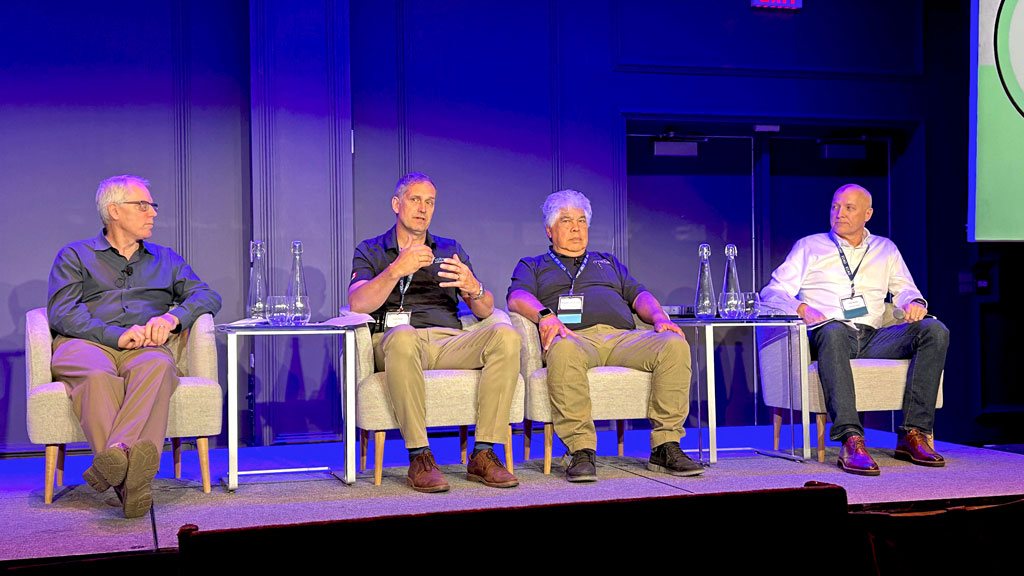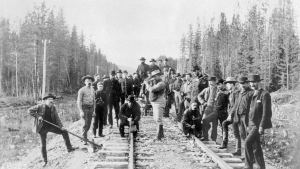There has been significant growth and change in the low voltage electrical industry in the past few years and it has left some contractors facing challenges.
A panel of experts talked about the Ontario Market Now at the Electrical Contractors Association of Ontario (ECAO) Low Voltage and Systems Integration Symposium held recently in Mississauga, Ont. Panellists agreed communications contractors are facing increasing demands.
“The low voltage sector is not a new sector but it’s a growing sector,” said Tom Beros, chair of ECAO’s communication committee and moderator at the event. “With many of our customers, there can be some challenges with understanding it. Then also add on top of not having a strong foundation on our consultants or engineers side and add quality control thrown into that and you’re teaching the people you are installing this for what they have to look out for.”
The person in the middle
A lot of new trends have emerged in the last few years and communications contractors often have to think about how systems and technologies integrate within a facility.
“We become a real crossover trade,” said Steve Watson of S & T Group. “We’re not computer programmers. We are not just cable installers, we’ve become that person who is in the middle.”
However, getting people with the proper skillset to do the installation work has also become an obstacle.
“We’re asking them to do things, again, they’re not a computer programmer, but they have to have a knowledge base of the IT infrastructure, how to set up the server, how to set up some networks, camera devices,” he added.
Michael Shaw, communications division manager at Vollmer Inc., agreed converging technologies require more training.
“We find we’re needing to cross train our technicians in the field because of all the converging technologies,” he said. “It helps if they have an understanding of EAS (extended area service), things like access control and alarms, AV systems.”
Benjamin Van De Putte of APCI Communications said the demands on contractors have become enormous.
“Meeting critical timelines within budget and quality — this is easily said, it is not easily done,” he explained.
“Why? Because we have to deal with construction delays, shortage of materials, bad designs. As a contractor we need to be incredibly inventive to deal with those challenges, to find proper solutions, to get solutions approved and in the end still meet the timelines.”
New systems could change communications landscape
In terms of emerging trends, Watson said years ago, electrical contractors thought POE (power over ethernet) lighting was going to completely change the industry but it didn’t.
“The way we had to deal with that was recognize we can’t just do the cable part of it and not look at what’s going to be connected to it,” he said. “The client asked us can you program it, can you supply it, can you design it, can you offer me other solutions to utilize my cable in a greater use?”
Clients expect a lot from electrical communication contractors these days, added Beros.
“They look to us as electrical communication contractors to solve their problems,” he stated. “They have all these different systems in separate silos.
“They don’t understand why they have to be separate silos or why we aren’t able to bring it all under one umbrella.”
Partnering with the competition
Partnerships have been key and will be even more important going forward.
“At this point now there have been many instances where we have been partnering with our competition,” he said. “I think going forward we’re going to see a lot more of that happening.
“We can’t be everything and anything for our customers, but as a group I think we can. I think that will be one of our strong advantages.”
Panellists agreed more collaboration with consultants and engineers is also needed in the sector.
“In years past we had a lot of direct relationships with our engineers and designers. We would be able to sit with them…I think that’s somewhat gone away,” said Watson. “They need to understand (the engineer and designer) that we have things to offer. At the end of the day we are the last ones with the clients. We know what they want, what they need. Oftentimes we’re the last trade talking to the clients.”
In terms of new technologies, the Class 4 Fault Managed Power could disrupt the industry.
These systems are not power limited and can deliver hundreds or thousands of watts.
According to Watson, Class 4 Fault Managed Power has great potential, however, it’s going to have to be adopted by the industry and manufacturers if it is going to take off.
“It could take off in the next five years but it’s going to have to be driven by some big players,” Watson said. “We’ve got to be ready for it so that when that opportunity comes for us no matter what part of the province it is, that as a contractor we’re going to be able to do it.”
Follow the author on X/Twitter @DCN_Angela.





Recent Comments